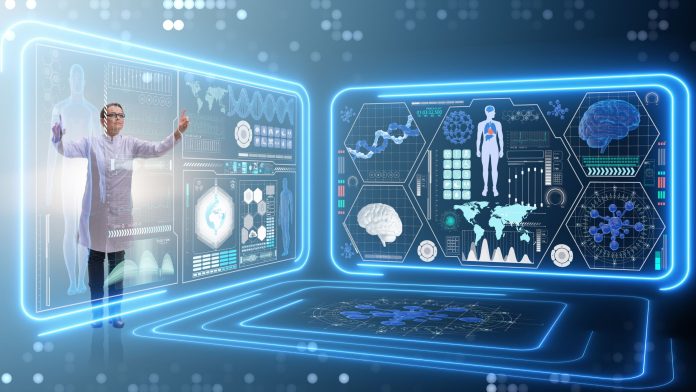Artificial Intelligence (AI) and machine learning (ML) are redefining the landscape of healthcare in India, providing significant improvements in diagnostics, patient care, and overall healthcare delivery. These technologies are enabling doctors to make faster, more accurate decisions, ultimately improving patient outcomes and optimizing healthcare services across the country.
The Role of AI and Machine Learning in Diagnostics
In the realm of diagnostics, AI has the potential to analyze medical data more efficiently than traditional methods. By processing large datasets of medical records, imaging scans, and patient histories, AI algorithms can detect patterns that may not be immediately visible to the human eye.
In radiology, for example, AI has been shown to assist in identifying early signs of diseases such as cancer, heart disease, and neurological conditions, often at an earlier stage than traditional methods.
Machine learning, which allows algorithms to improve based on data and experience, is now being used to analyze lab results, predict patient deterioration, and identify high-risk patients. With AI and ML, doctors can provide more personalized care, ensuring that each patient’s treatment plan is tailored to their specific needs and medical history.
AI in Personalized Treatment and Patient Monitoring
Machine learning algorithms can be applied to patient monitoring systems, predicting patient outcomes by analyzing real-time data collected from wearable devices and remote monitoring tools. These innovations allow healthcare providers to make informed decisions about treatment adjustments, reducing complications and improving long-term care.
AI-powered systems can also provide personalized treatment plans by analyzing a patient’s genetics, lifestyle, and other factors, allowing for more targeted therapies. This is particularly useful in fields such as oncology, where treatments need to be highly individualized to ensure the best results.
FICCI Healthcare Council and CII: Fostering AI in Healthcare
Organizations like CII Healthcare Council are playing a key role in supporting the integration of AI and ML in India’s healthcare sector. By promoting collaboration between tech companies, healthcare providers, and regulatory bodies, these organizations are working towards creating a regulatory framework that encourages innovation while ensuring patient safety and ethical AI use.
They are also driving initiatives to support AI research, with a particular focus on how machine learning can be leveraged to improve healthcare services in rural India, where the demand for specialist care often outstrips supply. By fostering partnerships between technology innovators and healthcare providers, CII is helping India harness AI’s potential to enhance healthcare delivery.
Challenges and Opportunities
While the benefits of AI in healthcare are clear, India still faces several challenges in fully integrating these technologies. There are concerns about data privacy and cybersecurity, especially when dealing with sensitive patient information.
Additionally, the widespread adoption of AI requires substantial investment in digital infrastructure, training healthcare professionals, and ensuring accessibility in underserved areas.
However, the opportunities are vast. With continued investment in AI and ML, India’s healthcare sector has the potential to become a global leader in digital health. AI could enhance diagnostic accuracy, reduce treatment costs, and improve patient care across both urban and rural areas.
The Future of AI in Healthcare
As AI and machine learning continue to evolve, their role in healthcare will only become more prominent. India’s healthcare system is at the cusp of a revolution in which these technologies will enable more efficient, cost-effective, and patient-centered care. With industry bodies like CII Healthcare Council advocating for continued investment and policy support, AI’s future in Indian healthcare looks incredibly promising.











